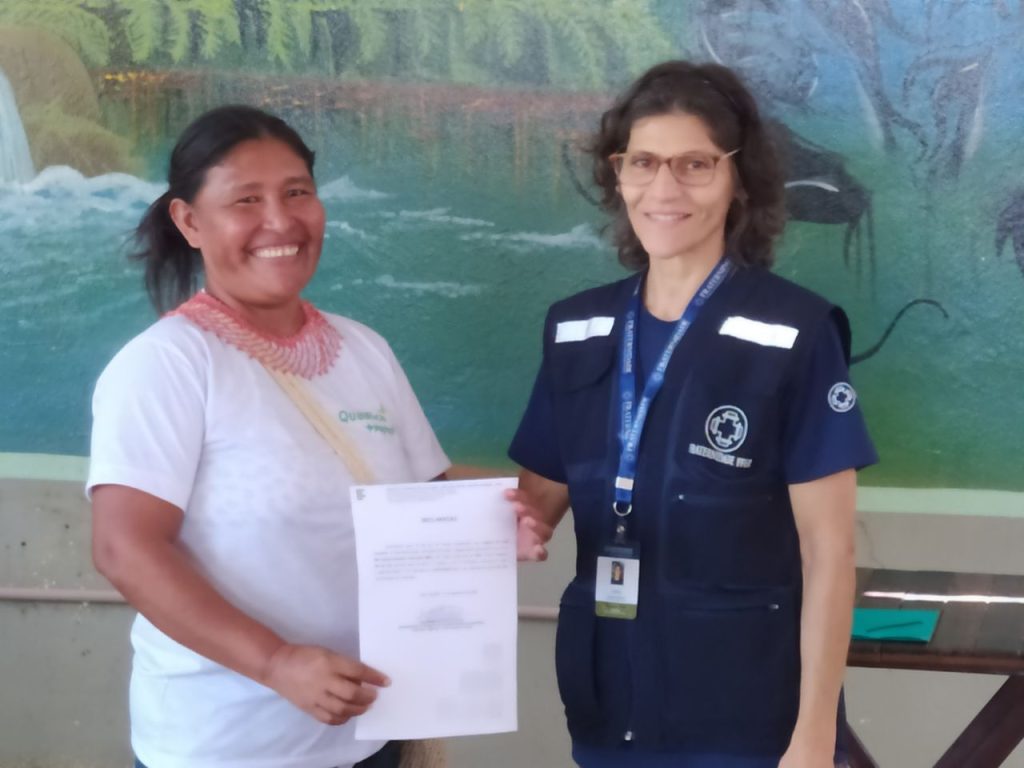The Individual Micro-entrepreneur course, promoted through a joint effort between the Federal Institute of Roraima (IFRR) and the Fraternity – International Humanitarian Federation (FIHF), took place from November 3 to December 12, 2022, bringing together 24 indigenous Taurepang, Warao, Wapixana, Macuxi, Ye’kwana and Kariña. Participants were selected and nominated by the Indigenous Cultural and Training Centre (CCFI) among beneficiaries who were already starting their own business or who were interested in doing so.

According to the course instructor, Edmar Augusto Oreano, IFRR teacher trainer, this training was of significant importance, as it is aimed at an audience that needs deeper knowledge about entrepreneurship and commercialization. The course was 100% successful, with a lot of dedication and interest, with around 90% of the participants going straight to the application of knowledge, as they already have a small enterprise that can be better structured or expanded. And those who still don’t have it are motivated to start their own business.

The training focused on the possibility of expanding small enterprises, with topics such as marketing, social networks, commercialization and negotiation techniques, lines of credit and financial education. The finalization of the activities took place with the elaboration and exhibition of business plans, in addition to cultural presentations of the six participating ethnic groups.

Katiane da Silva de Souza, a Macuxi indigenous woman from the Maturuca community, Raposa Serra do Sol Indigenous Land, Uiramutã municipality, Roraima, Brazil, stated that the course was important to deepen and improve many issues that are necessary to open a business. Some participants already had activities in progress, but lacked more information to expand.

In addition to the exchange of knowledge with the professor, there was an exchange between six different ethnic groups, with presentation of their work, interaction and exchange of knowledge in a practical way. Katiane also added the effects that can be taken to the communities: “In the community they make a lot of handicrafts, but this kind of knowledge is lacking on how to make and expand a business. This is very important for us women, as we are in need of ways to generate income. Before I finished the course, they were already looking for me, wanting to make a partnership and work together.”





